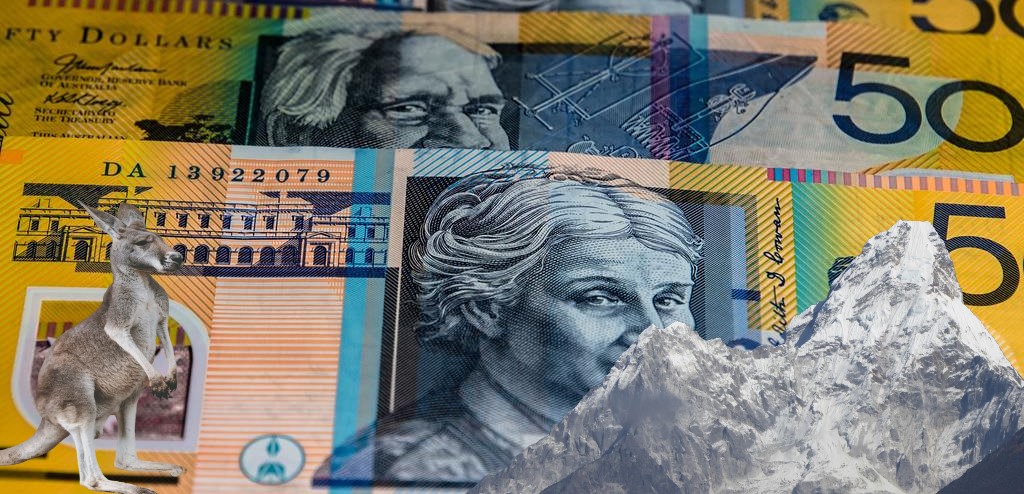
Invesco Currency ETF AUD NYSEARCA:FXA Performance
FXA's Liquidity, Volatility, and the Influence of Macroeconomic Factors on its Performance
The Invesco CurrencyShares Australian Dollar Trust (NYSEARCA:FXA) has been closely impacted by the prevailing economic environment in Australia, marked by fluctuations in interest rates, the GDP growth rate, and other economic indicators.
As of July 18, 2023, the Trust had a previous close of 67.56 with an opening price of 67.60. Its trading volume is comparatively low, with 1,145 against the average volume of 6,622. This inferior liquidity could lead to high bid-ask spreads, meaning investors may need better prices when buying or selling their shares. The ETF has total net assets of $72.55M, indicating a decent size, but it is still smaller compared to many other ETFs, which can influence its liquidity and efficiency.
The FXA ETF has an expense ratio of 0.40%, a consideration for long-term investors. While it might seem small, over the years, it can eat into your potential gains significantly. The fund has also maintained a yield of 0.44%, which, despite being modest, provides some level of income.
The FXA's Beta value, a measure of volatility or systematic risk, stands at a surprisingly high 21.27. This means that it's significantly more volatile than the market, which might attract investors looking for higher returns, but at the same time, it means a higher level of risk.
The ETF's performance has been quite mixed over the years. For instance, in 2020, it recorded a positive return of 9.52%, but in 2021 and 2022, it posted negative returns of -6.17% and -6.46%, respectively. In 2023, the year-to-date return is positive, albeit low, at 0.72%. These fluctuations underline the impact of external macroeconomic factors, particularly related to the Australian economy, on the performance of this ETF.
Speaking of macroeconomic factors, the Reserve Bank of Australia's recent interest rate decisions have clearly impacted the Australian dollar and, thus, the FXA ETF. While maintaining the current cash rate of 4.1%, the RBA has signaled the possibility of further hikes to curb inflation. This dynamic environment of monetary policy has directly influenced the performance of the Australian dollar and, consequently, the FXA.
In particular, one key factor that investors need to note is the decline of the Aussie dollar against the USD since February. Domestic Australian issues and international factors, such as the economic slowdown in China, have impacted this. Any positive changes in these dynamics could significantly boost the AUD and the FXA.
As we review the options contracts for the FXA ETF, the lack of activity with zero open interest in all the listed strike prices reflects a deficient level of interest from options traders. Low options activity can indicate less speculative stake in the ETF, potentially affecting its volatility.
Further, Australia's GDP growth rate could have been better, a crucial determinant of the economy's health. It increased at the weakest rate in 1.5 years last quarter due to high prices and rising interest rates impacting consumer spending. This slowdown in the domestic economy could harm the FXA ETF.
The AUD/USD exchange rate, as of July 18, 2023, stands at 0.72. This indicates that one Australian dollar can purchase 0.72 US dollars. The performance of this currency pair significantly impacts the value of the FXA ETF because the fund's primary aim is to track the price of the Australian dollar against the US dollar.
Looking at the historical performance of the AUD/USD over the past few years, we see a clear downtrend. This downward trajectory has been influenced by several factors, including Australia's economic performance, international trade developments, and fluctuations in commodity prices, as Australia is a significant exporter of commodities.
In late 2022, the AUD/USD peaked at 0.80 before gradually declining to its current level. This depreciation of the Australian dollar against the US dollar has inevitably influenced the performance of the FXA. As the Australian dollar weakens, the value of the ETF decreases, leading to potentially lower returns for investors.
However, any recovery in the Australian dollar would benefit the FXA. For instance, if Australia's economic situation improves, if commodity prices rise, or if the US dollar weakens, these could all lead to an appreciation of the AUD/USD, increasing the value of the FXA.
Recent macroeconomic indicators show signs of potential recovery. For example, if the Reserve Bank of Australia's hawkish stance on interest rates successfully reins in inflation without significantly slowing economic growth, this could boost investor confidence and strengthen the AUD. Moreover, if there's an uptick in China's financial performance, considering it's Australia's largest trading partner, it could lead to an increase in the AUD/USD exchange rate.
That's TradingNEWS
Read More
-
SPYI ETF at $52.59: 11.7% Yield, 94% ROC and Near S&P 500 Returns
04.01.2026 · TradingNEWS ArchiveStocks
-
XRPI and XRPR Rally as XRP-USD Defends $2.00 on $1.2B XRP ETF Inflows
04.01.2026 · TradingNEWS ArchiveCrypto
-
Natural Gas Price Forecast: NG=F Eyes $4.30 if Storage Draws Tighten
04.01.2026 · TradingNEWS ArchiveCommodities
-
USD/JPY Price Forecast - USDJPY=X at 156.91: 157.75 Breakout Sets 160 Target as Fed Jobs Week Tests The Dollar
04.01.2026 · TradingNEWS ArchiveForex


















